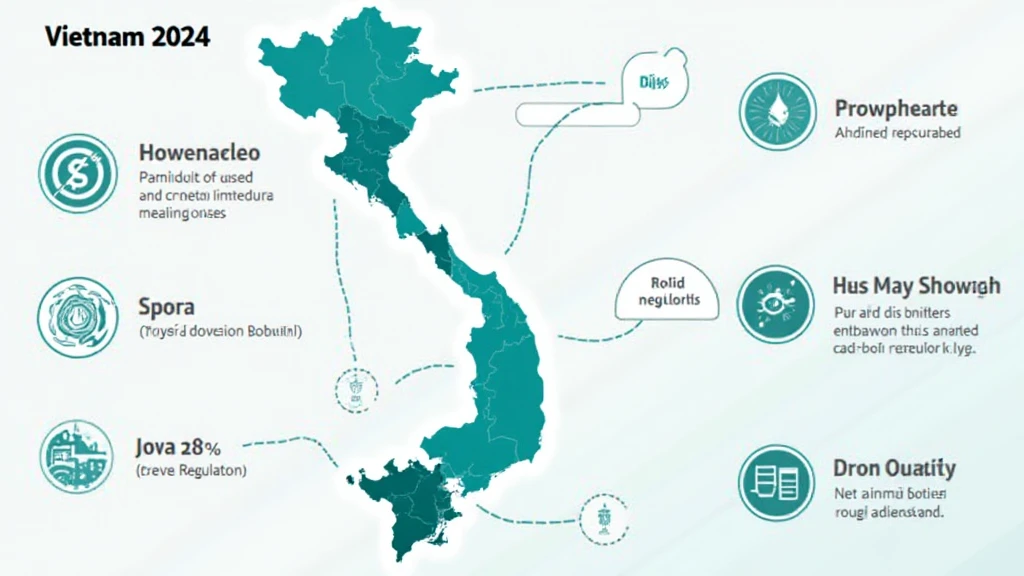Vietnam Crypto Regulations: Understanding the Landscape
In recent years, the cryptocurrency space in Vietnam has undergone significant changes, especially as traditional financial institutions begin to take notice. According to a report from Statista, the number of cryptocurrency users in Vietnam is expected to reach approximately 16 million by 2025, creating a robust environment for digital asset trading and investment. But what are the regulations governing this booming sector?
This article aims to guide you through the labyrinth of Vietnam’s crypto regulations, the current market conditions, and what the future may hold for digital currencies in this rapidly developing country.
The Current State of Vietnam Crypto Regulations
The Vietnamese government has been cautious yet open to the advent of cryptocurrencies. Initially, the State Bank of Vietnam (SBV) classified cryptocurrencies as illegal forms of payment. However, regulations are gradually evolving. The country now focuses on creating a legal framework that encourages innovation while protecting users.

In 2023, the government proposed a roadmap for regulating digital currencies and assets, emphasizing compliance, security, and risk management. This is part of a broader strategy to integrate blockchain technology into various sectors while ensuring consumer protection. For instance, the guidelines on “tiêu chuẩn an ninh blockchain” (blockchain security standards) highlight the importance of maintaining robust security protocols for digital transactions.
The Role of the SBV
The State Bank of Vietnam has taken a pivotal role in shaping the cryptocurrency landscape. The SBV’s circulars and directives are intended to curb fraudulent activities while fostering a transparent market environment. The bank has announced regulatory measures that involve:
- Risk Assessment: Continuous evaluation of risks associated with cryptocurrency transactions.
- Compliance Standards: Establishing compliance norms for exchanges and users to follow.
- Consumer Education: Initiatives aimed at educating the public about cryptocurrency risks and benefits.
While the regulations are still in flux, these steps mark a significant shift toward a structured approach to cryptocurrency oversight in Vietnam.
Market Dynamics: Growth and Challenges
The demand for cryptocurrencies in Vietnam has been fueled by a young, tech-savvy population. According to Chainalysis, Vietnam ranks fourth globally in cryptocurrency adoption, showcasing an impressive growth rate of over 40% year-on-year. Despite this growth, several challenges remain:
- Regulatory Uncertainty: Lack of clarity in regulations can hinder investor confidence.
- Fraud Risks: Users must navigate a landscape filled with scams and unregulated exchanges.
- Global Competition: Competitors from neighboring nations are advancing rapidly in their regulatory frameworks.
To mitigate these challenges, collaboration between the government and industry players is essential for fostering a secure and vibrant market.
Future Outlook: What to Expect
As Vietnam progresses towards approving comprehensive cryptocurrency legislation, 2025 is expected to be a transformative year. With potential solutions to issues like fraud and market volatility on the horizon, here are some trends to watch:
- Increased Institutional Adoption: More traditional financial institutions will likely enter the crypto market, bringing stability.
- Smart Contracts Regulation: Expect clearer regulations surrounding smart contracts as they become more mainstream.
- Enhanced Security Standards: Following the proposed “tiêu chuẩn an ninh blockchain”, the industry may see stricter security guidelines being implemented.
Such advancements can offer both opportunities and risks for investors and users alike.
Global Context: Lessons from Other Markets
Vietnam is not alone in navigating the complexities of cryptocurrency regulation. Countries like Singapore and Switzerland serve as successful examples of how regulatory clarity can spur market growth. Singapore’s approach, characterized by its Payment Services Act, promotes safe trading while attracting international players.
Similarly, Vietnam could benefit from taking cues from these markets to refine its regulatory landscape, ensuring it remains competitive in the global cryptocurrency space.
Conclusion: Navigating Vietnam’s Crypto Future
As we look ahead to 2025, Vietnam’s crypto regulations appear poised to evolve, striking a balance between innovation and user security. With increasing awareness and engagement in the cryptocurrency market, investors must stay informed about these regulations.
For those navigating this exciting yet complex landscape, adopting best practices in security and compliance will be crucial. Leveraging trusted platforms like cryptopaynetcoin could provide a safer trading experience while keeping abreast of local regulations.
In this rapidly changing environment, remaining adaptable will be key as Vietnam takes further steps toward integrating cryptocurrencies into its economy.
**Author: Dr. Minh Nguyen** – A recognized blockchain expert with over 20 published papers and the lead auditor for numerous high-profile projects in the field. Dr. Nguyen has been at the forefront of shaping blockchain initiatives in Southeast Asia.


